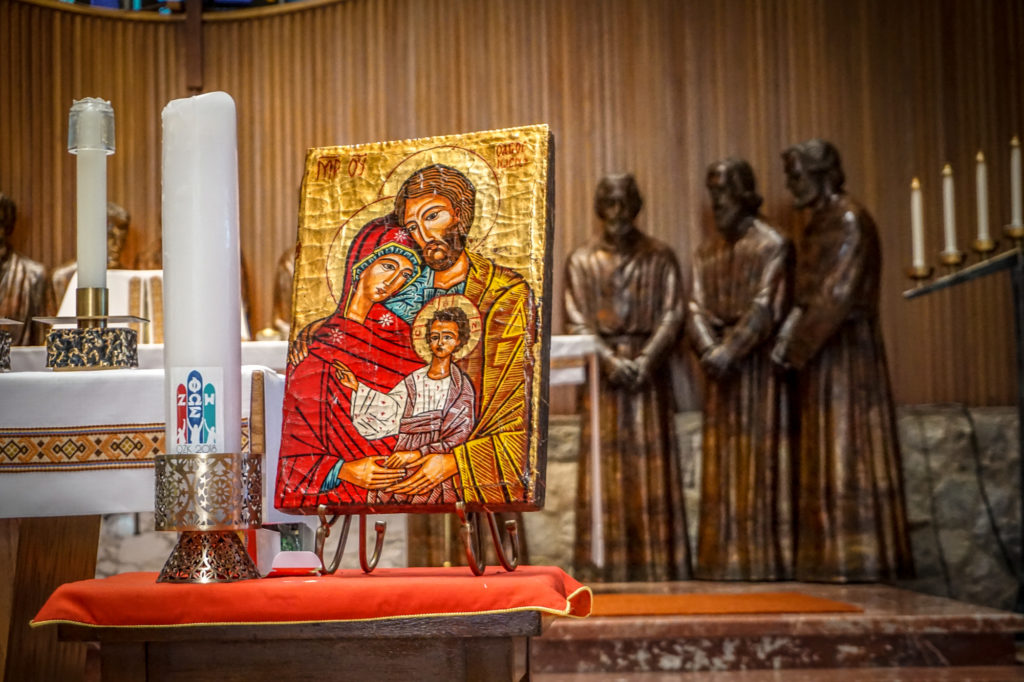Domestic Church is the family branch of the Light-Life Movement founded in Poland by Venerable Servant of God, Fr. Franciszek Blachnicki (1921-1987) with the guidance and support of his bishop, Karol Wojtyła (later Pope St. John Paul II).
Domestic Church is a movement for sacramentally married Catholic couples and families who want to grow in mutual love and pursue sanctity together. The Movement helps spouses in building true unity and in creating a truly Christian environment for bringing up children. It provides lifelong formation in personal, marital and family spirituality.
The beginnings of the Domestic Church date back to 1973 when the first oasis for families took place in Krościenko upon Dunajec and when Sister Jadwiga Skudro RSCJ (1914-2009) started to cooperate with Fr. Blachnicki in 1974. She was his assistant in organizing and leading the movement of family communities. She helped to establish many circles, led retreats, translated and elaborated formation materials. Since 1975 she was a member of the editorial staff of the Domestic Church’s magazine called: “Domestic Church. Letter to Family Communities”. In 2007, during the 4th World Congress of Families in Warsaw, she was honored for her long involvement in service to families. After Fr. Blachnicki’s death, she continued to care for the charism of the Domestic Church.
The DC formation program is based on the documents of the Second Vatican Council and the current teaching of the Church; it combines the formation principles of the Light-Life Movement (created by Father F. Blachnicki) and principles of the Teams of Our Lady (brought to Poland from France by Sister Jadwiga Skudro).
The symbol of the Domestic Church is a cross with Greek letters FOS-ZOE (LIFE-LIGHT) springing from two joined wedding rings put in the shape of a house. The DC also uses as its sign the Teams of Our Lady’s Icon of the Holy Family.
The Movement is accepted and supported by Polish Bishops and document “The Domestic Church Principles” has been approved and ratified by the Polish Bishops’ Conference.
The Domestic Church is growing dynamically not only in Poland, but also beyond its borders, reaching even the USA and Canada. There are also DC circles in Belgium, the Czech Republic, Germany, Sweden, Norway, Holland, Great Britain, Ireland, Luxemburg, France, Ukraine, Belarus, Kazakhstan, Slovakia, Austria (Wien) and Russia (Moscow). There are 400 circles all together.
Liaison couples from Poland help them remain in unity with the Domestic Church in Poland.
At present, there are 3900 DC circles in Poland and they provide a place of formation for more than 17 500 married couples.

